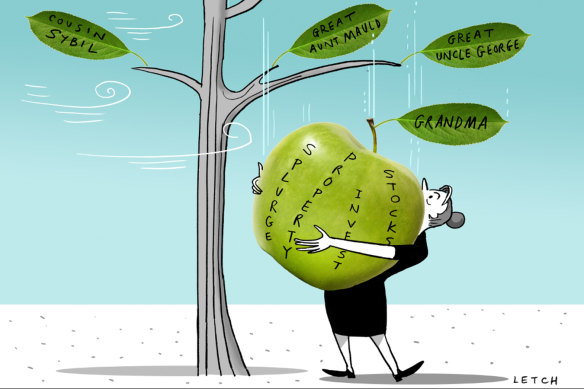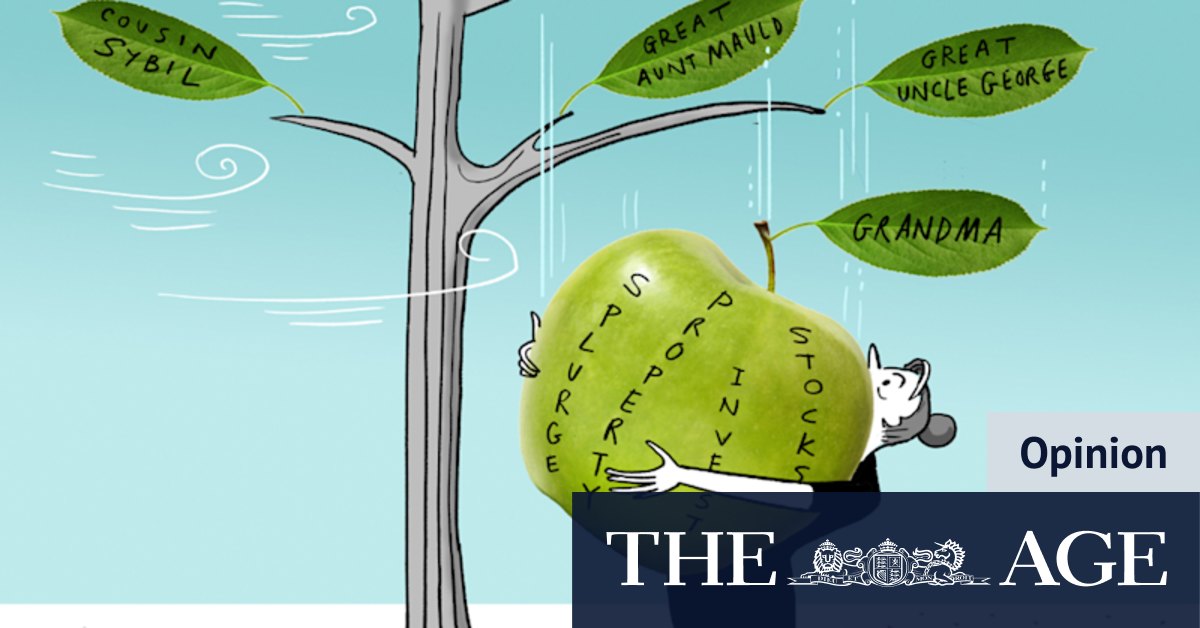I have just received an inheritance of roughly half a million dollars. I have $140,000 in my super fund and owe $160,000 on my house. I am 62 years old and have a small interiors business earning about $50,000 a year. What should I do with the money?
Thanks for your question. As a first port of call, I would clear the mortgage. At current mortgage rates and your marginal tax rate of 30 per cent, an investment would need to generate a “before tax” return exceeding 8.1 per cent to provide a superior outcome.

There can be many different strategies for handling an inheritance.Credit: Simon Letch
To achieve that, you’d have to take on risk. In contrast, the interest saved on your mortgage is a riskless outcome. Layered on top of this, I would imagine at some point you will be looking to retire. Being debt-free in retirement is a goal for most of us, as it’s one less thing to worry about and it reduces the amount of income we need to produce.
With the mortgage cleared, I’d then look to boost your super. At 62, you could access money in super whenever you decide to retire, so the normal drawback of preservation associated with super is of no great concern for you.
Your current super balance won’t provide many years of comfortable retirement, so it would be great to see this grow. To help this along, consider redeploying the money that had been going towards mortgage repayments into superannuation.
Your day-to-day cash position will continue to look as it does today, but your end retirement benefit will be greater, giving you more options come that next phase of life.
Our son is 27 and works as a carpenter, earning about $83,000 a year. He has minimal savings, as he tends to spend most of what he earns. We’re considering whether setting up regular payroll deductions into his superannuation – say $200 to $300 a week – could be an effective way to establish “forced” savings. The idea would be to access these funds in three to four years’ time under the First Home Super Saver (FHSS) scheme to help with a property purchase.
We’re unsure of the tax implications of this strategy and whether you think it’s a suitable approach given his current financial habits and goals. What are your thoughts?
Yes, this could be a great way to save for his first home. The First Home Super Saver scheme allows you to take up to $50,000 of voluntary contributions, plus their associated earnings, out of your super to purchase a first home.
